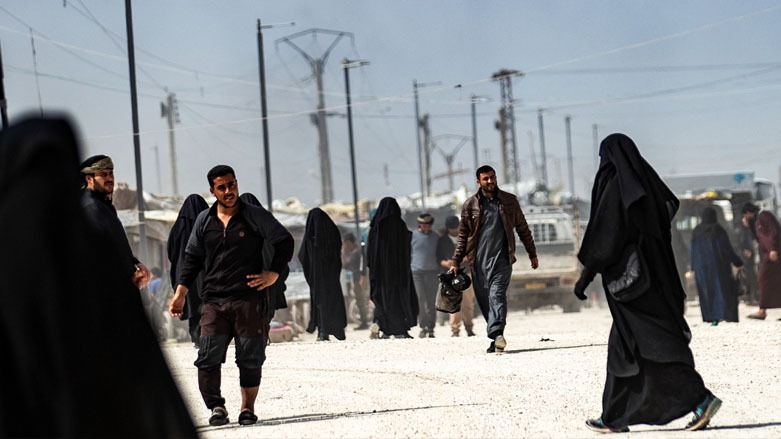Finland repatriates women and children with links to ISIS from northeast Syria

ERBIL (Kurdistan 24) – Finland is bringing home a family with ties to ISIS from northeast Syria on Friday as part of the government’s efforts to rescue children from violent displacement camps.
Ambassador Jussi Tanner, the Finnish Foreign Ministry’s special envoy in charge of the repatriations, told Kurdistan 24 that a woman and her two children would land in Finland on Friday afternoon.
Citing the children’s privacy, Tanner would only say that they were “small children below the age of six” and had been living in Roj camp under control of the Syrian Democratic Forces.
Tanner explained that bringing the trio back to Finland was not only a humanitarian mission, but an attempt to prevent the children from being radicalized in the camps where ISIS ideology lingers.
“For us, for Finland, repatriating these children is both a constitutional obligation for the Finnish authorities, and the question of the obligation to guarantee the rights of the child, if that's possible,” he said in an interview on Thursday.
“But it's also a security interest. So we very much feel that the longer children remain in those camps, the harder it will be to counter violent extremism and radicalization.”
He stressed, “there's a fundamental security argument behind repatriating these children. They need to get out of these conditions.”
Families moved out of northeast Syria usually travel through the Kurdistan Region on their way home, and Tanner said the Kurdistan Regional Government had “played a huge role” and offered “extremely professional support” for Finland’s efforts.
“We have nothing but positive things to say about that cooperation,” he said.
Children in Camps at Risk for Radicalization
Since the fall of the Islamic State in Syria in March 2019, thousands of children of ISIS fighters, including foreign men and women, have lived in Roj and al-Hol camps in squalid conditions. The camps are a hotbed for violence and children have died in fires. International experts further warn that the lack of education and other services leaves the children vulnerable to further radicalization.
Some European countries have repatriated citizens linked to ISIS after lengthy court battles. But there is also mounting international pressure to bring home children specifically.
Last month authorities from the civilian administration in northeast Syria met with Western diplomats online to discuss repatriating “non-criminal ISIS affiliates” – namely, women who have not been accused of crimes and their children.
The SDF and its linked Autonomous Administration of North and East Syria (the de facto government in the region) have publicly urged Western governments to repatriate their citizens, citing overcrowding of the camps and security concerns. The US, which leads the anti-ISIS coalition, has also urged its European allies to bring their people home.
Finland is one of only a handful of countries actively repatriating children, and Tanner said women’s cases are being judged individually.
“I know some other European countries have arrived at these questions through individual court decisions. But in Finland, the process has gone a little differently,” he explained.
In October 2019 the Finnish department of justice decided to prioritize the rights of children, saying international obligations demand they be “helped whenever possible.” Tanner said the government’s objective was to repatriate any Finnish child still be in Syria.
But, he added, “everybody knows that it's not possible to repatriate the children without their mothers” and they have only been brought back alone “in some very exceptional cases.”
There are legal issues in Finland and other countries that may prevent an adult woman from being repatriated, for example. Another complication is that the Kurdish-led authorities in northeast Syria are “not willing to separate the children from their mothers either.”
Abdulkarim Omar, co-chair of the foreign affairs bureau for the autonomous administration, said in May that “orphans or humanitarian cases can be repatriated [alone] with the mother's consent.” One such case in Canada recently saw a 4-year-old girl brought home while their mother was temporarily left in Syria.
But, he said: “Our laws say that we shouldn't separate children and mothers. Women that aren't accused of anything can be repatriated.”
“So for us, it's quite a clear cut case, we either repatriate an entire family, or we leave everybody there,” Tanner said.
Negotiations with authorities in northeast Syria have been long and at times difficult, he said, including over the family brought home on Friday. Tanner tried to bring them home previously, “but it didn’t work out.”
The envoy said he was grateful to the northern Syrian officials that the family were being repatriated now, and “with excellent cooperation, and we intend to continue.”